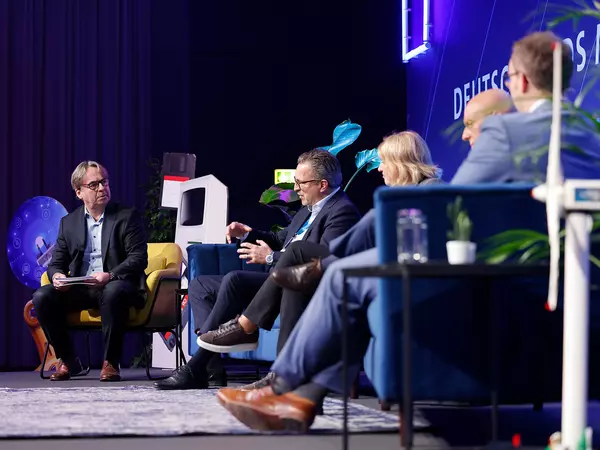


In his opening speech at the 14th German Mechanical Engineering Summit, which took place in Berlin on November 7 and 8, VDMA President Karl Haeusgen emphasized that Germany's future as a business location was a pressing issue for mechanical and plant engineering companies in view of the international conflicts and their direct impact on the economy. This is just one of many challenges currently facing the industry. The fact that, against this backdrop, cooperation and discussion on how best to shape the future of the industry is becoming increasingly important was also reflected in the number of participants. With 900 attendees, this year's Mechanical Engineering Summit was the largest ever held.
There was a consensus that the use of digital technologies such as the Internet of Things (IoT), artificial intelligence (AI) and machine learning are essential for the mechanical engineering industry in order to position itself successfully amid global competition. A number of presentations and discussions focused on the opportunities offered by digital business models. But the challenges that need to be overcome, such as data security as an essential precondition for digitalization, were also addressed.

Without secure data rooms, trustworthy data exchange is impossible. The Manufacturing-X initiative is laying the foundations here. The data room is being set up by various companies on both a federal and grassroots level. The decentralized platform is tailored to European industry and is aimed at protecting the industry know-how. Companies will be able to share data across the entire manufacturing and supply chain without losing control over their data. Companies can use the shared data pool on an equal footing, for example to avoid supply chain bottlenecks or reduce energy consumption in production.
The requirements for this have already been created. Improved cooperation is now on the agenda, according to Henrik A. Schunk, Chairman of the Board of SCHUNK SE & Co. KG. Resilience is extremely important to ensure competitiveness. This can only be achieved through numerous parties exchanging data. "We have to move from the 'ego system' to the 'ecosystem' because it holds much greater potential for machine and plant engineering," explains Schunk. Moderator Hartmut Rauen, Deputy Executive Director of the VDMA, added that it was now important to break down barriers in people's minds. The focus is now on developing the data room into a trusted space.

In his role as a member of the expert jury for the "Biorevolution" start-up awards, Henrik A. Schunk praised the importance of innovative start-ups as an engine for economic development. "Development partnerships with start-ups are an important factor for opening up new technologies faster." This year's award was presented to the start-up company Ucaneo, whose biomimetic technology solution for the direct CO2 capture from ambient air impressed the jury.